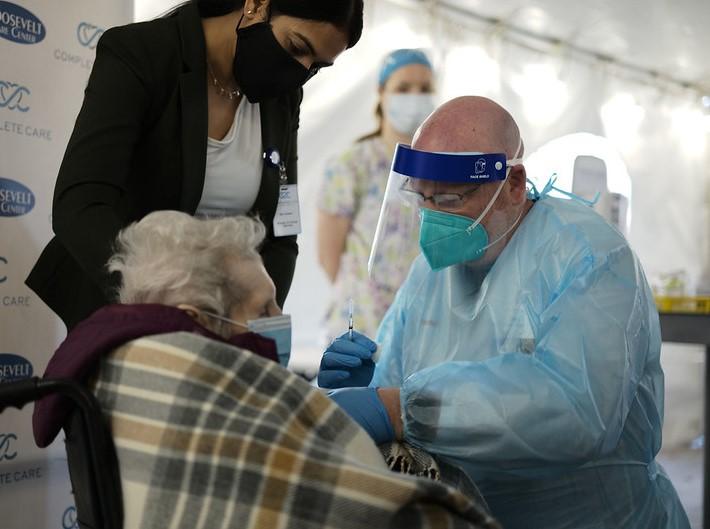A study today in Morbidity and Mortality Weekly Report shows that US nursing home residents who received a second mRNA COVID-19 vaccine booster dose 60 days earlier were 26% protected against Omicron infection, 74% against hospitalization or death, and 90% against death alone.
A team led by researchers from the Veterans Administration Medical Center in Providence, Rhode Island, monitored the electronic health record data of residents of 196 Genesis HealthCare nursing homes in 19 states who received their second mRNA COVID-19 booster (primary series plus two booster doses) from Mar 29 to Jun 15, 2022, until Jul 25. There was a median of 49 residents per facility.
Of the 9,527 residents, 3,245 (34.1%) received a second booster dose.
In a matched analysis, 1,902 residents were paired in a 1:1 ratio with controls (1,343 residents weren't included because they couldn't be matched with a control). Average age was 78 years, and about 35% were men. The study period spanned the predominance of the Omicron subvariants BA.2 and BA.2.12.1 (March to June) and BA.4, and BA.5 (July).
Staying up to date with boosters
A second COVID-19 booster dose had an estimated 60-day vaccine effectiveness (VE) of 25.8% against infection, 73.9% against hospitalization or death, and 89.6% against death alone. The researchers said they included the composite end point of hospitalization or death because hospitalization of a nursing home resident is subject to many other considerations in addition to acute illness.
"The overall health and functional status, life expectancy, resident and family wishes, and general policies of that site are considered," they wrote. "Some residents might have a low likelihood of being hospitalized even with severe COVID-19 illness, which might explain not being able to exclude a null effect for preventing hospitalization alone."
Also, reporting death alone is problematic, they said, because if residents are hospitalized or transferred, their death might not be noted in the nursing home's records.
The results demonstrate the importance of second COVID-19 booster doses in preventing poor outcomes among nursing home residents, the researchers concluded, noting that the relatively short follow-up period didn't allow assessment of waning over time.
"These findings suggest that among nursing home residents, second mRNA COVID-19 vaccine booster doses provided additional protection over first booster doses against severe COVID-19 outcomes during a time of emerging Omicron variants," they wrote. "Facilities should continue to ensure that nursing home residents remain up to date with COVID-19 vaccination, including bivalent vaccine booster doses."




















